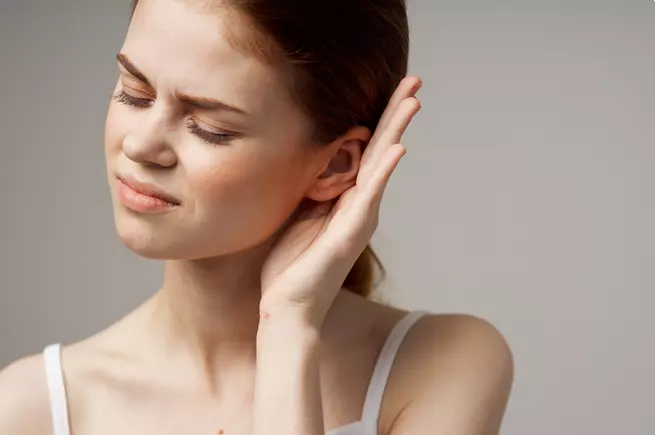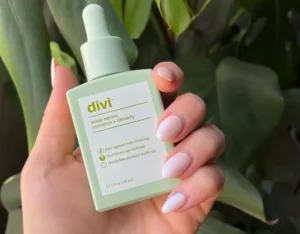Ever feel like your ears are burning after running, even if it’s warm or you’re indoors? If you’ve ever felt like your ears hurt after running you’re not alone, it’s actually a quite common occurrence. But why does it happen? And how can you stop your ears from hurting after going for a quick jog?
Why Do My Ears Hurt After Running?

It may be difficult to find the source of what’s making your ear hurt after running as there are many variables that can come into play. The most common causes of ear pain during and after running include:
Cold Weather Woes
Running in chilly weather can be invigorating, but it can also contribute to ear pain. The exposure to cold air can cause blood vessels in your ears to constrict, leading to discomfort. Shield your ears from the elements by wearing a hat, headband, or earmuffs while running in cold weather. These accessories not only keep your ears warm but also help reduce the risk of ear pain.
The Eustachian Tube Conundrum
One common culprit behind ear pain during running is the Eustachian tube. These tiny passageways connect your middle ear to the back of your throat and help regulate pressure. During exercise, rapid movements and increased blood flow can affect the Eustachian tube’s ability to equalize pressure, leading to discomfort. To prevent this, try swallowing, yawning, or chewing gum during your run to promote Eustachian tube function and alleviate the pain.
Sinus Pressure and Congestion
When you hit the ground running, your body undergoes changes, including increased blood flow and breathing rate. These factors can affect your sinuses, causing pressure and congestion that may radiate to your ears. Combat sinus-related ear pain by keeping your sinuses clear and healthy. Nasal irrigation with a saline solution, using a humidifier, or inhaling steam before and after your run can help alleviate congestion and prevent ear discomfort.
Ear Wax Buildup
Excessive ear wax can lead to discomfort and even ear pain. When you run, the movement and jarring can agitate the wax, causing pain or pressure. It’s recommended to avoid inserting cotton swabs or any objects into your ears, as this can push the wax deeper. Instead, consult a healthcare professional who can safely remove the excess wax if necessary.
Impact-Related Issues
The repetitive impact of running can transmit vibrations to your head and ears, causing discomfort for some individuals. If your ears hurt after running due to the impact of your feet hitting the ground, consider modifying your running technique or adjusting your running surface. Opt for softer surfaces like grass or trails, invest in well-cushioned running shoes, and ensure you have a proper running form to minimize the impact on your ears.
Temporomandibular Joint (TMJ) Dysfunction
TMJ dysfunction refers to issues with the joint connecting your jaw to your skull. This condition can cause ear pain, particularly during activities that involve impact or repetitive movement, like running. If you suspect TMJ dysfunction, consult with a dentist or a specialist who can evaluate your jaw joint and provide appropriate treatment options.
Infection or Trauma
In rare cases, running can exacerbate an existing ear infection or cause trauma to the ear. If you’re experiencing severe or persistent pain, along with other symptoms like discharge, fever, or hearing loss, it’s crucial to seek medical attention promptly to rule out any underlying infections or injuries.
Related: Intermittent Fasting For Weight Loss
How Can I Prevent Ear Pain When Running?

If you experience ear pain when running due to wind chill, there’s not much you can do other than dress warmly and try to avoid running in very windy conditions. There are some tips you can take though to minimize ear pain while running.
- Warm Up Properly: Begin your running routine with a warm-up session that includes dynamic stretches and light aerobic exercises. This helps increase blood circulation and prepares your body, including your ears, for the upcoming activity.
- Maintain Proper Hydration: Staying hydrated is essential for overall health, and it can also help prevent ear pain. Dehydration can lead to thickened mucus in the Eustachian tubes, potentially causing discomfort. Drink an adequate amount of water before, during, and after your run to keep your body hydrated.
- Use Proper Headphones: If you listen to music while running, opt for headphones that allow ambient noise to pass through. This helps maintain awareness of your surroundings and reduces the need to raise the volume excessively, which can potentially be a reason why your ears hurt after running.
- Avoid Extreme Weather Conditions: Running in extremely cold or windy weather may increase the risk of ear pain. Protect your ears by wearing a hat, headband, or earmuffs to shield them from harsh elements.
- Maintain Good Sinus Health: Keep your sinuses healthy by practicing good nasal hygiene. Use saline nasal sprays or perform nasal irrigation regularly to keep your nasal passages clear and reduce the risk of sinus congestion, which can contribute to your ears hurt after running.
- Equalize Ear Pressure: If you feel pressure building up in your ears during your run, try to equalize the pressure. Swallowing, yawning, or gently blowing air against closed nostrils while pinching your nose can help equalize the pressure in your ears and alleviate discomfort.
- Monitor Your Breathing Technique: Pay attention to your breathing technique while running. Breathing through your nose and exhaling through your mouth can help regulate air pressure and minimize the potential for ear pain.
- Take Breaks and Modify Intensity: If you find your ears hurt after running frequently, consider taking breaks or modifying the intensity and duration of your workouts. Gradually increase your running time and intensity to allow your body, including your ears, to adapt to the physical demands.
Related: Are You Sitting Wrong? – See How to Sit Properly







